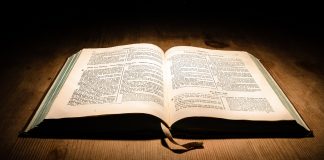The angry Christian: How can we free ourselves from destructive anger?
A man is about as big as the things that make him angry – Winston Churchill
The last tear
I found myself at the airport, waiting to board my flight. At one point, the speakers announced the names of four people who were expected at a nearby boarding gate. Their names were called three times. Eventually, the airport staff withdrew, and the door closed behind them. Shortly afterward, a modest-looking family appeared. The confusion in their eyes, as they glanced left and...
God’s silence
Renee James was 18 when she decided to stop praying. If God was going to be silent, she thought, she would be silent too. She had been praying for years for the healing of her brothers, Sean and Niall, one suffering from autism and the other from Down syndrome. Yet there had been no answer.
Peace of mind, and peace forever
Peace I leave with you; my peace I give you. I do not give to you as the world gives. Do not let your hearts be troubled and do not be afraid. – John 14:27
A day on the golf course and the unexpected effects of trauma
Douglas Jacobs has a long pastoral and academic career, as well as many hobbies and interests. An accidental witness to an armed incident that changed his perspective on life and death, he shares his surprising experiences and lessons learned.
The mystery of the seventh day (III)—Was Jesus a legalist?
In the first two articles of this series, we examined the biblical theology of the Sabbath in relation to the divine act of creation, the history and theology of the people of Israel and early Christianity. This third and final article in the series will examine the Sabbath from the perspective of legalism, under which some commentators have placed seventh-day observance.
A Bible for everyone
Little Welsh girl Mary Jones anxiously walked the 40 kilometres. She couldn't wait to buy a Bible in her language, as she had been saving for it for more than six years. But when she reached the shop of Mr Charles, her pastor and teacher, she found with despair that all the Bibles were either sold or already spoken for.
The God of love, the God of justice
Centuries ago, the German theologian and philosopher Gottfried Wilhelm Leibniz used the term “theodicy”1 for the first time—“God’s justification”. By theodicy, Leibniz meant the ultimate reality of justification, once and for all, of God and all of His ways before the whole universe.
Why forgive? | The “justice” you don’t put to death won’t let you live
Following a poll, the Gallup Organization revealed good news and bad news. The good news is that 94% of the population believes that it is very important to forgive. The bad news is that 85% admit that, in their own power, they are not ready to forgive.
“God is dead”. Any objections?
The tendency toward the total privatization of religious life is particularly strong today, especially in the new generation.
My stellar moments
It is said that God works through people. I am convinced that the people evoked in connection with my stellar moments—and I really would have liked to name them all—each contributed, in their own way, to my reunion with Divinity.
COVID-19: Hope ordinances and a divine governance
Fines, military ordinances, police and army patrolling the streets – this is the reality we have suddenly found ourselves living in. It is a tightening reality, a rigid corset-like structure of rules.
Miracles or superstition? | An a posteriori response to the anti-supernaturalist assumption
Up until the Enlightenment, the idea that the miracles recorded in the pages of the Bible happened as the biblical writers described them was widely accepted. With the rationalism of the seventeenth and eighteenth centuries, an alternative theory emerged: that miracles were not possible in naturalistic metaphysics.
A tsunami put under a microscope
In 2004, we experienced firsthand one of the most devastating tsunamis of our century. It was early morning, on Boxing Day.


























